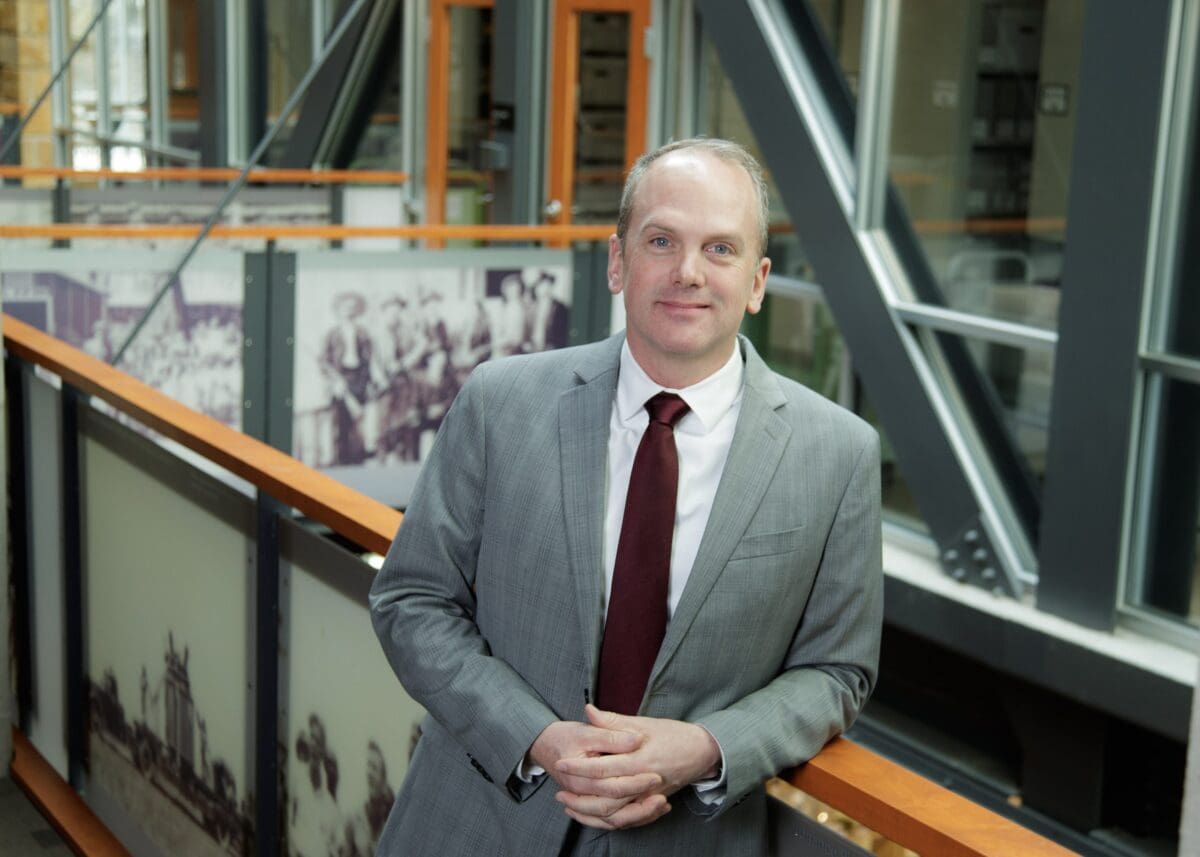Porter Named Executive Director of Center for Arkansas History and Culture

Dr. Jess Porter, associate professor of geography at the University of Arkansas at Little Rock, has been named the executive director of the university’s Center for Arkansas History and Culture.
The Center for Arkansas History and Culture, which is housed in the Bobby L. Roberts Library in partnership with the Central Arkansas Library System, is a unique and reliable resource center that explores and promotes Arkansas’s rich history through identifying, collecting, and preserving records that are of enduring value to the state.
In this role, Porter also oversees UA Little Rock Downtown and the Sequoyah National Research Center, which constitutes the largest assemblage of Native American expression in the world. He supervises around 25 full-time employees, interns, and student researchers throughout the three centers.
Porter took over the position from Dr. Deborah Baldwin, associate provost of collections and archives, who has become the interim dean of the College of Business, Health, and Human Services.
“I was absolutely thrilled at this opportunity,” Porter said. “This is a job that I would argue may well be the best at the university. Dr. Baldwin has run this shop successfully for a number of years and has built an incredible organization. They have a success rate at over 70% at writing grants and have built some enduring partnerships. All of these things set the stage for me, assistant director Laura McClellan, our archivists, and students to continue to build on that success.”
The staff has recently finished archiving the Congressional collection of Rep. Vic Snyder, and the Center for Arkansas History and Culture has some exciting projects on the horizon. They are now working with Congressman French Hill to archive his collection of papers as the center continues to bolster its formidable array of political collections.
The center is also working on processing the collection of the late Dr. Raye Montague, an internationally registered professional engineer with the U.S. Navy who is credited with creating the first computer-generated rough draft of a U.S. naval ship. Montague’s son, Dr. David Montague, serves as the associate vice chancellor for academic affairs at UA Little Rock.
“We also have a collection of Ruth Coker Burks, author of ‘All the Young Men,’” Porter said. “Her story is remarkable. She is sometimes known as the Cemetery Angel of Arkansas. During the height of the AIDS epidemic, she provided care and dignity for many men that were sick with AIDS. Many of the men were interred in her family cemetery.”
Porter said the center also strives to continue to be a resource for teachers and educational partners, especially as online education remains popular and vital to student success.
“We have excellent resources available that are beneficial to teachers and students, including lesson plans, study guides, and assignments,” Porter said. “It’s a true service that we can provide to the community and our teachers.”
Porter holds a bachelor’s degree in geography and environmental studies from the University of Colorado as well as a master’s degree and Ph.D. in geography from Oklahoma State University. Porter started at UA Little Rock as an assistant professor of geography in 2009 and has served as the chair of the Department of History since 2017.
Prior to joining UA Little Rock, Porter taught at Oklahoma State University, where he developed and implemented geospatial technologies curriculum for rural schools. He also worked as an environmental analyst and mapping specialist in the oil and gas industry, and managed an adventure tourism company in Colorado.
His research on the Dust Bowl was featured in an episode of The Weather Channel’s “When Weather Changed History.” He is co-curator of a National Endowment for the Humanities traveling exhibit about the Dust Bowl. His current research utilizes geospatial technologies to analyze historical Chinatowns of the US-Mexico borderlands.
He looks forward to getting the word out about the resources and activities of the Center for Arkansas History and Culture.
“We’re not just for academic researchers. We have so much to offer the citizens of our state and beyond,” he said. “The story of Arkansas and its people is fascinating, and no one knows Arkansas like we do!”
